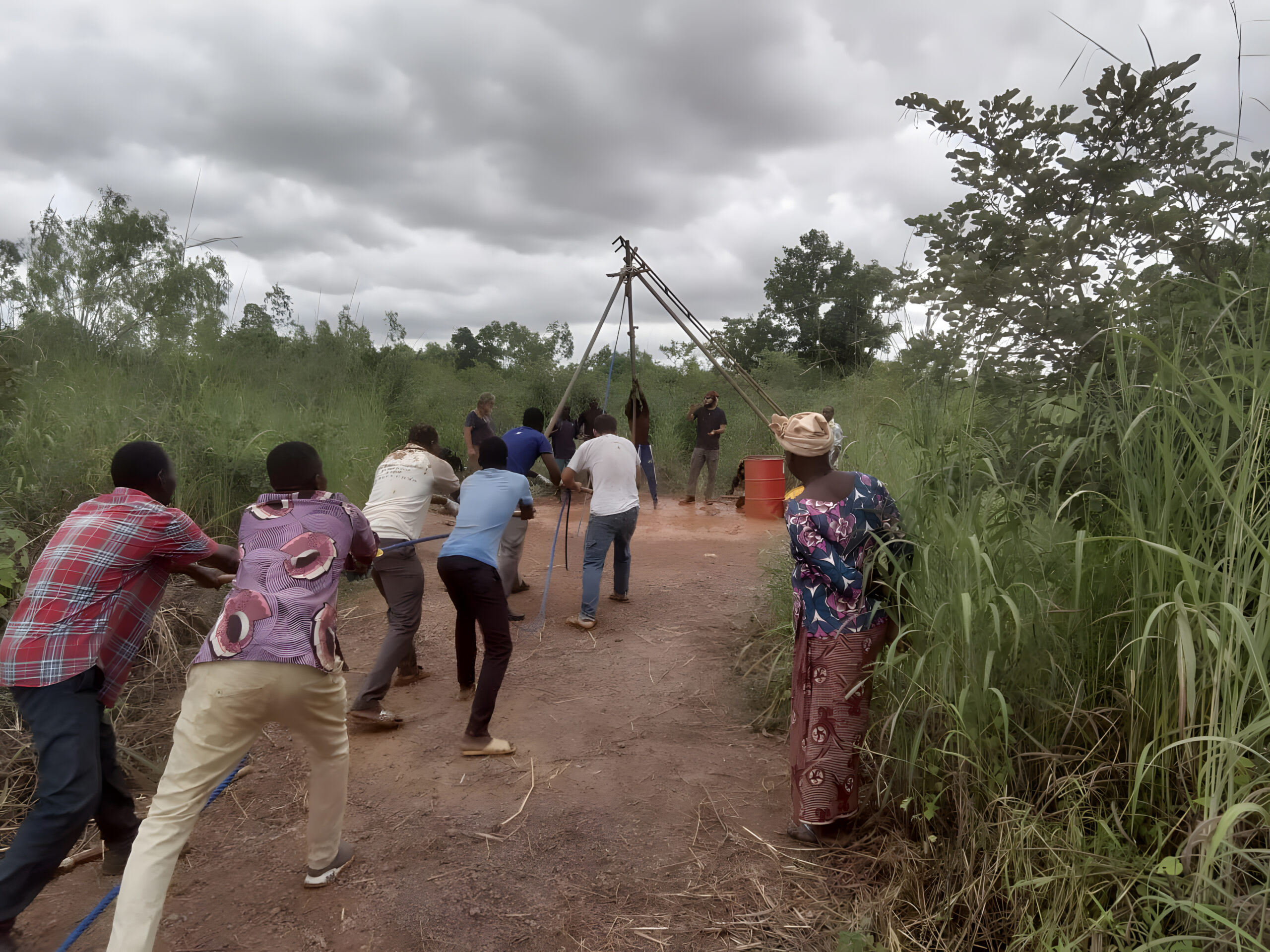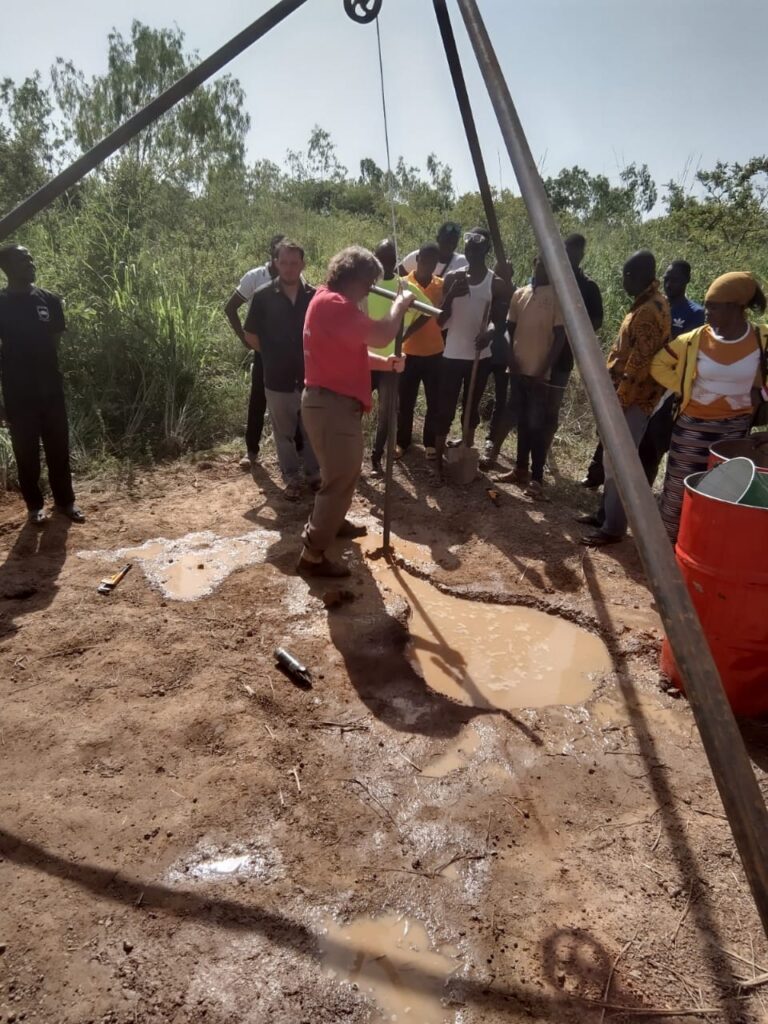EFI’s Water Vision

The regenerative farming methods that EFI teaches are low tech and low cost. All one really needs to farm using EFI’s method is a garden hoe. The approach for watering should be similarly low tech and affordable.
EFI trains communities to hand-dig shallow, small bore hole wells capable of providing irrigation for crops, water for livestock, and general water supply for the families and workers.
Most farmers rely on rain-fed irrigation, but with a hand-dug well, the growing season can be extended to allow growing more and diverse food crops for consumption and marketability.
The wells are generally drilled in the dry season. While anyone can use this method, typically a group of men will learn it and then teach it to the general population as time permits and as others are willing to learn and put in the work.
The equipment for this type of drilling can be purchased in any country. As low tech as this method is, at times there is a need for a skilled worker to make a specialized drill bit or other tools that might be specific to a geographical location.
The method EFI teaches drastically reduces the cost. Drilling with typical rotary equipment is expensive and usually a one-person operation. The cost can range upwards of $40-$100 per meter. Our method has a low cost of $4-$10 per meter. We educate families and villages to buy their own materials and learn the method for themselves.
The education does not stop with the drilling. We teach pump design, pump maintenance, and water harvesting techniques designed for the development of safe drinking water for villages.
We want to foster indigenous well drilling movements, rather than only drilling wells for people. At the village shop level we want to eventually see craftsmen building, selling, and renting drilling equipment. We want well making to be a commonly known art in a culture.

Frequently Asked Questions
How will EFI support areas where the rainy season has been disrupted and water is becoming scarce?
EFI will use various water technologies to significantly improve environmental performance.
How will EFI “improve environmental performance”?
In areas with an accessible aquifer EFI will instruct the farmers and families how to drill low cost, shallow, small bore hole water wells.
Are water wells the only method for water access that EFI employs?
No, in order to improve environmental performance, EFI will take a multitiered approach to water. Our approach will include methods such as harvesting rain water, storage, filtration, and best practices for irrigation.
How are villages and farmers impacted by EFIs approach to water access?
The primary impact is an overall improvement in water quality. Secondary impacts include additional agricultural production on an increased irrigated area and the addition of higher value crops. Other socio-cultural include impacts of increased agricultural production, higher incomes, improvement in family livelihoods, and changes in the value of agricultural land.
How will EFI implement all of the available technology for positive environmental performance?
EFI will educate and train farmers and communities in the various disciplines that are required to drill wells, build water storage facilities, and perform filtration. Technologies such as welding, small engine repair, and basic pumps can be taught.
